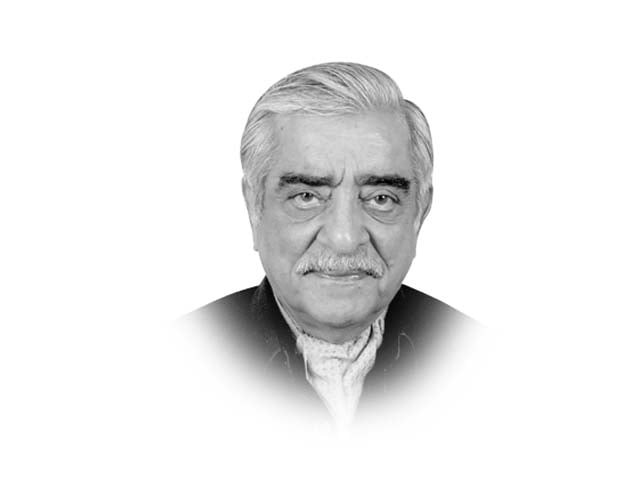Lessons and costs of the Libyan uprising
Let us not remain the one country in which billionaire political leaders pay Rs5,000 as annual income tax.

Lessons and costs of the Libyan uprising
How did this come about? Admittedly, political freedom was absent. Qaddafi, his sons and close cohorts, along with a strong and brutal security network, controlled every facet of business and social activity.
But this was also a country with an annual per capita income of over $12,000 and while this was not evenly divided, there are few reports to indicate that Qaddafi and his family had amassed billions abroad. The dissolute behaviour of his sons when abroad, while reprehensible, was not horribly expensive and Qaddafi’s eccentricities, including his apparent penchant for women commando guards and buxom East European female companions, were not very expensive indulgences. Certainly no one is suggesting that Qaddafi had, as is said of Ben Ali of Tunisia or Mubarak of Egypt, stashed away huge amounts in Swiss banks or acquired expensive real estate in London, New York or Paris.
It was a country in which illiteracy had been done away with and in which enough housing had been constructed to give most Libyans a comfortable home. It was a country in which while, according to one estimate, there was 30 per cent unemployment, there were also more than two million foreign workers of whom there was only a limited number who could not have been replaced by Libyans. It was a country with more than $100 billion in foreign exchange reserves and the ninth largest oil reserves in the world.
Was this uprising, by people that Qaddafi chose to refer to as “cockroaches and rats” and who were allegedly high on foreign-supplied drugs, triggered by the supporters of al Qaeda? This is now the claim that Qaddafi’s sons are making. All the reports that are appearing seem to negate this possibility. Indeed, religion of any stripe seems to have played little part in the rebellion, nor does the composition of the committees that have come into being, in various cities where anti-Qaddafi demonstrators hold sway, suggest the dominance of religious figures.
Was this the result of tribal rivalries? Close observers of the Libyan scene tell me that while Qaddafi had, in the first few years of his 40-year long rule, tried to do away with tribalism, he had in more recent years tried to resurrect the tribe and the influence of tribal leaders in a bid to ensure that he could manipulate these leaders to maintain his grip on power. These observers, however, believed that that the hold of tribal leaders had never been strong and had been further attenuated by education. In any case, it was apparent from the announcement by the leaders of the one-million-strong Warfullah tribe that they were joining the uprising and the defection of prominent members of Qaddafi’s own tribe, that tribal loyalties or rivalries had little to do with the uprising.
So what are the lessons? First, even the richer countries of the Arab world are not immune to the ferment that has spread out from Tunisia to Egypt and thence to Yemen, Algeria etc. Second, much of this is happening not because the West wants it but in spite of the close connections that western governments have maintained with dictatorial regimes in the region. Third, it is only a matter of time before the same winds start blowing elsewhere, affecting initially other Muslim countries where, despite the existence of the trappings of democracy, injustice and inequity prevails, and then to other similarly placed countries.
More urgently, however, from Pakistan’s national perspective, is the cost that the turmoil that now prevails in the global oil market will impose on a fragile economy and on the government’s treasury. The Saudis, with an excess capacity of four million barrels a day, have apparently promised to step in and raise their production to match the decline in Libyan production, but the general estimate is that the current high price will prevail and probably stay high through the second quarter of this year.
The government can no longer afford to postpone the price increases that should have been made last month and it must now be prepared to let the full impact of international prices be reflected in the new price. There will be hardship but that will have to be borne if Pakistan is not to teeter on the brink of bankruptcy. Let us be clear that whatever the political dangers of imposing even higher burdens on an already overburdened populace, these will be easier than the chaos that will ensue if our finances are not set in order.
Of course another more equitable course would be to impose taxes on those who don’t pay them now and raise not just indirect taxes such as the RGST but also the income tax, into the net of which must be drawn the million of urban dwellers and the rural rich who have so far evaded tax. Let us not remain the one country in which billionaire political leaders pay Rs5,000 as annual income tax. Otherwise, the ferment of the Arab world will hit us faster than we would want.
Published in The Express Tribune, March 1st, 2011.














COMMENTS
Comments are moderated and generally will be posted if they are on-topic and not abusive.
For more information, please see our Comments FAQ